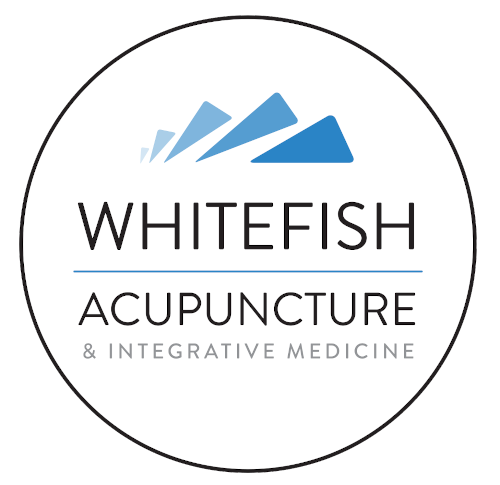Traditional Chinese Medicine Proves Effective in Modern Clinical Trial
A traditional Chinese medicine has been shown to be effective at reducing complications following a heart attack after a large-scale, clinical trial.
The medicine, known as Tongxinluo (tong-shin-loo), is made of extracts derived from seven herbs and various animals—including scorpions, cicadas and leeches. The compound, whose name means "to open the network of the heart," has long been used as a traditional Chinese treatment for patients who have had heart attacks and/or strokes.
Based on promising results in cellular and animal models, the State Food and Drug Administration of China approved its use for the treatment of stroke and angina pectoris—a heart condition characterized by reoccurring chest pain—in 1996.
But the medicine had never been evaluated in a randomized, double-blind, placebo-controlled clinical trial—the gold standard of drug testing that is usually required to approve treatments in the United States and Europe.
The latest study, which has been published in JAMA (formerly The Journal of the American Medical Association), represents one of the first times that a traditional Chinese medicine has been tested in a large-scale, Western-style clinical trial.
The authors of the study, who include researchers from several Chinese universities and hospitals, in collaboration with experts from the University of Texas Southwestern Medical Center (UTSW)—found that tongxinluo reduced the risk of heart attacks (known as myocardial infarctions), deaths and other major cardiovascular complications for at least a year after a first heart attack.
Matthew Saybolt, a cardiologist with the Hackensack Meridian Jersey Shore University Medical Center who was not involved in the latest study, told Newsweek that he found the latest research "compelling" after reviewing the paper. "I am not aware of any other large, well-run trials like this studying traditional Chinese medicine. This is a rarely run type of study, and I congratulate the authors for their work and publication in such a prestigious medical journal," Saybolt said.
The study involved 3,777 patients at 124 clinical centers in China who had suffered the most severe form of heart attack—known as ST-segment elevation myocardial infarction, or STEMI. This condition involves a blood clot that completely blocks a major vessel supplying the heart. The patients were enrolled from May 2019 to December 2020, with the last date of follow-up occurring in December 2021.
The patients were treated within hours of symptom onset by surgical or chemical removal of the clot. While they received standard treatments over the next year—such as taking a daily aspirin or medications including beta blockers—half of the individuals were randomly selected to receive tongxinluo as well. The other half were given a placebo—designed to match the look, smell and taste of the traditional Chinese medicine—instead.
Over the next year, the patients were followed to track the incidence of major adverse cardiac and cerebrovascular events (MACCEs), an umbrella term that covers cardiac death, repeat heart attacks (myocardial reinfarctions), stroke and emergency procedures to restore blood flow to the heart.
The results showed that the incidence of MACCEs was around 30 percent lower in the group that took tongxinluo, compared with those participants taking the placebo at 30 days of follow-up. These benefits persisted for one year after discharge, and no major side effects were recorded, indicating that the medicine was safe to use, the authors found.
"Many drugs have failed to achieve effects as impressive as this traditional Chinese medicine," Dr. Ying Xian, an author of the study who is at UTSW, said in a press release.
Saybolt said the study was "well conducted," with a large sample size that was "well powered" to measure the outcomes. "In this trial, there is clearly a benefit to patients treated with this Chinese medicine compound compared to placebo," he said.
He went on: "A reduction in death, reinfarction or complications after a STEMI is a very exciting finding. We have for some time been trying to bend the curve and improve mortality and complications after STEMI. Any new therapy, if safe, that can accomplish this would be very appealing to patients and physicians alike."
"Furthermore, the study drug Chinese medicine compound was composed of multiple plant and insect products. Thus, we do not know which component or combination of components were the active ingredients and what is the correct dose."
Further research will be needed to address these matters, and the benefits shown in this study would need to be duplicated in other populations before the treatment could get approved by the U.S. Food and Drug Administration.
Saybolt said he would be "very interested" to see another study of its kind in a broader population outside China. "We must also isolate the compound into its individual components and determine which of the components is the therapeutic ingredient."
Traditional Chinese medicines are seldom tested in large, randomized, placebo-controlled, blinded trials, he said.
"The gap in research is due to a combination of bias in research towards traditional pharmaceuticals and due to funding. Large trials such as this require funding from federal agencies, grants or industry sponsorship. A generic medicine or nutritional/herbal/animal/insect compound has little financial backing in many cases," he said.
Eric Peterson, a senior author of the study who is at UTSW, advised and collaborated with the Chinese researchers. He told Newsweek: "Is the medicine ready for the West? No. Does it show interesting promise? Absolutely. And we should not discount it. We have shown that traditional Chinese medicines can be tested."
He continued: "There's a little bit of disbelief when you just look at the ingredients that are in it. People in the West...we have our doubts. We felt similarly about some of the drugs that we had to treat malaria until we found that they were actually pretty powerful medicines. So I think there are a lot of natural cures that actually are based on some believable and truthful benefits."


